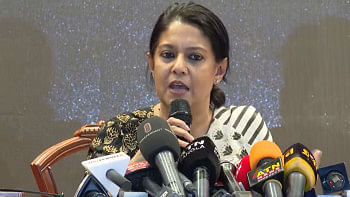Bangladesh’s preparedness for Mpox: Challenges and opportunities

As Mpox continues to spread globally, Bangladesh faces an urgent need to assess and enhance its preparedness for this emerging health threat. The recent classification of Mpox as a Public Health Emergency of International Concern (PHEIC) by the World Health Organisation has heightened the need for countries like Bangladesh to evaluate their readiness and response capabilities.
Bangladesh might face a significant challenge with the recent Mpox outbreak, particularly with the emergence of the Clade 1b strain, which is more transmissible. This new variant's spread through sexual networks adds urgency to the country's response efforts.
Dhaka's airport has taken proactive measures by setting up systems to manage passengers exhibiting Mpox symptoms. This includes providing informational leaflets, staffing health desks 24/7, and using thermal scanners for temperature checks. Suspected cases are directed to designated hospitals for further evaluation, with safety protocols in place, such as medical masks, disposable gloves, and hand sanitisers.
The primary challenge for Bangladesh is establishing a robust surveillance system and upgrading its diagnostic capabilities. Despite improvements made during the COVID-19 pandemic, Mpox requires specific diagnostic expertise and equipment. Enhancing laboratory infrastructure and seeking external support will be crucial for effective testing and management.
Vaccination against Mpox is another critical aspect. Currently, two global Mpox vaccines are not widely available in Bangladesh. The health ministry must collaborate with international organisations to secure vaccine supplies and develop a priority vaccination plan targeting high-risk groups and healthcare workers.
Public awareness and education are vital for an effective response. Tailored messaging on Mpox prevention, symptoms, and treatment should be communicated through various channels, including social media and existing health programmes. Collaboration with civil society organisations will help counter misinformation and support affected individuals.
Border control and travel-related measures will also play a role, particularly considering Bangladesh's geographical proximity to high-risk areas. Proper screening at ports of entry, combined with targeted travel restrictions, will be necessary to manage potential outbreaks.
Bangladesh must also address resource allocation and funding challenges, balancing the response to Mpox with other health priorities. Establishing a dedicated task force and leveraging the pharmaceutical industry's capacity for local drug and vaccine production could enhance the country's preparedness. Regional cooperation within the South Asian Association for Regional Cooperation (SAARC) may further bolster response efforts.
By proactively addressing these areas, Bangladesh can build resilience against Mpox and strengthen its overall health emergency preparedness. Effective planning, vigilant monitoring, and international collaboration will be key to navigating this emerging threat and safeguarding public health.
The writer is a student of Geography and Environment department of University of Dhaka. E-mail: paromabasak322@gmail.com


 For all latest news, follow The Daily Star's Google News channel.
For all latest news, follow The Daily Star's Google News channel. 



Comments